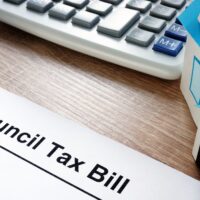
Legally, councils can impose rises of up to 4.99 per cent a year. This would add £103 to the average council tax bill, with the typical Band D charge increasing to around £2,168 a year.
Last year, almost three-quarters of all councils in England added 4.99 per cent to bills for 2023-24.
The government publishes thresholds for council tax increases each year and if local authorities wish to increase bills above these, they are required by law to hold a referendum. The current threshold is 4.99 per cent and next year’s threshold is expected to be the same.
A report by the i newspaper quoted a “leading local government figure” who said: “Local councils are under more pressure than they have ever been. You only have to look at what happened to Birmingham to know that.
“Last year, three out of four councils in England raised council tax by the maximum 4.99 per cent and I expect almost all will seek to do so from next April.
“Councils have had funding from central government slashed so much that they are left with little choice. If they don’t raise council tax by 5 per cent then they will have to cut services even more, and there’s not a lot left to cut.”
Local councils under pressure
Birmingham City Council effectively declared itself bankrupt at the beginning of September when bosses issued a section 114 notice, signalling that the council does not have the resources to balance its budget. Many other councils are also in financial distress and will need to cut costs while also hiking council charges such as parking fees.
Cornwall Council has already said it will raise bills by the maximum amount, meaning a rise of £89 a year for Band D properties.
Some councils that have already gone bust have government permission to hike bills by more than normally allowed. Slough Council, for example, declared a section 114 notice in 2021 and has now been given permission by the government to put up council tax by 10 per cent.
Debt charities have warned that the poorest households are often hit hardest by council tax rises, with advisers saying that council tax is one of the “priority debts” that clients typically struggle with. Falling behind on even one council tax payment can quickly lead to escalating debt collection activity.















